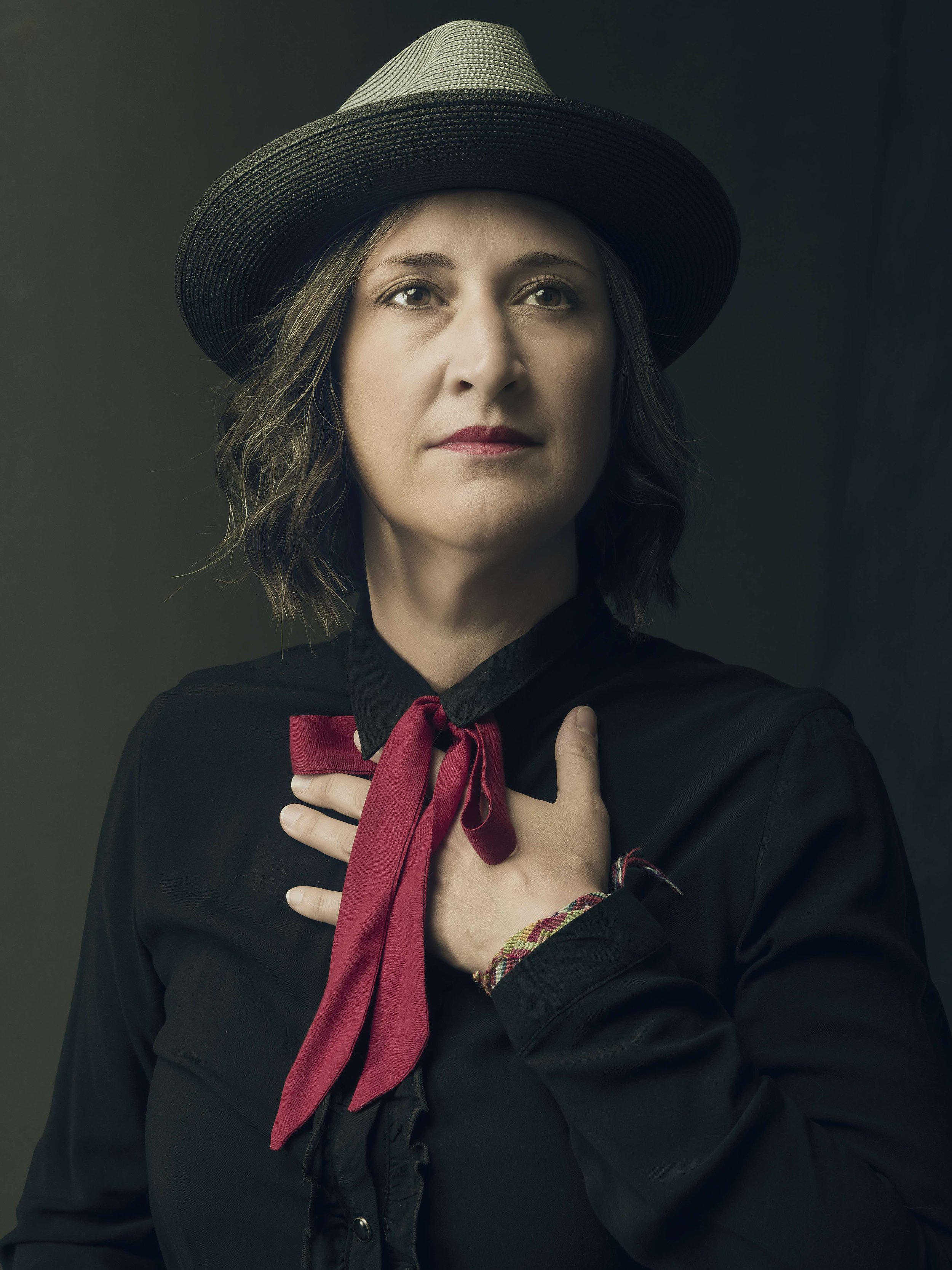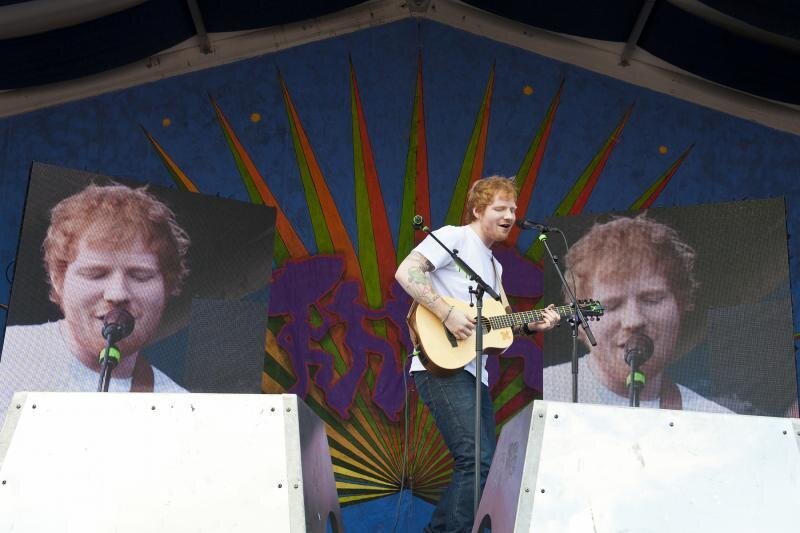Travers Geoffray Disbands Mississippi Rail Co., Makes Solo Debut at Jazz Fest

The former front man has a new solo album, which was an extension of what the band had become.
Mississippi Rail Company took a game stab at classic New Orleans R&B along with a number of related southern, piano-driven R&B styles. The band got warm but never hot, so when I received an email announcing a new album by Travers Geoffray, the leader of Mississippi Rail Company, I wasn’t surprised. Highway Kings is also more or less the record that Mississippi Rail Company prepared you for if you saw the band, but it goes a few less expected directions as well.
Geoffray will open Jazz Fest’s Acura Stage Saturday at 11:20 a.m., and Highway Kings show Geoffray widening his range. On “Drive,” “Mabel,” and “New Orleans,” he pounds out triplets or barrelhouse piano to give the songs a solid push, but the album also shows a softer, more singer/songwriterly side. His piano feeds more melodic development on those tracks, but that takes Geoffray perilously close to Adult Contemporary waters where emotions go to moderate. It will be interesting to hear what happens to those songs live.
Geoffray will also play Gasa Gasa on Saturday night opening for Maggie Koerner, and the Aloft Hotel on May 4.
Recently, Geoffray and I spoke via email about Highways Kings and the end of Mississippi Rail Company.
What happened to Mississippi Rail Company?
By the time I starting recording Highway Kings, Mississippi Rail Company was really just a name for me and whatever ensemble I brought to the gig. When the original members/founders left the group (amicably) in 2012, they left me the name. The name died in Duluth, Minnesota where I was doing some of the vocal tracks. It’s hard to explain, but there I realized, along with my producer, that some songs sounded like they were coming from just one person, not a band. Which of course, was the case. There was nudging in that direction by some outside forces too.
Mississippi Rail Company was really just a mask for me post-2012. The name represented a certain energy and a certain style of music. For instance, songs like "Drive," "Mabel," and "New Orleans" are definitely MRC tunes. Songs like "Highway Kings," "Take Me Home" and "Don't Stop" would not have made it on an MRC set list. I didn't want to make a whole record with an MRC approach; there was another side of me as a songwriter that wanted to come out.
I’m not sure any city other than New York has more songs about it than New Orleans does. What did you feel like you had to say about New Orleans in “New Orleans” that still needed to be said?
Well, I can't really take credit for saying anything about New Orleans in "New Orleans" since J.J. Cale wrote it. [D’OH! Thanks 2017, where I download review copies of albums without liner notes or credits.]
I like songs or albums that eerily apply to today's world. They can be good history lessons. I was listening to Randy Newman's Good Ole Boys (an album I go to often) and was really shaken up by how applicable that album remains in 2017. J.J. Cale's "New Orleans" did the same for me. Lines like “Crying the blues is what they do down here" and “Drinking bourbon from a Dixie cup / hanging out 'til the sun comes up" share a view of New Orleans that I still see today.
The meaning of those lines depends on your perspective. Lightness and darkness exist in those lines simultaneously. I see New Orleans in that same lightness and darkness today. Some days I wake up thinking that I could live in no other city; some days I think I've got to get out as fast as I can. Many times, both feelings come from the same origin.
Is “Ride Out West” a song about cowboys? I’m not sure if you’re singing to someone in 2017 or 1917 or some time earlier than that in it.
Literally, yes. I was reading a lot of Cormac McCarthy at the time, specifically The Border Trilogy [All the Pretty Horses, The Crossing, and Cities of the Plain], and wanted to write a song for John Grady and his gang. Beyond that, it is meant to be anachronistic. Applied today, it is meant to challenge the myth of the self-made man in this country. So very few us are self-made men and women, but the romance of that myth is so powerful in the foundation of this country and across all forms of media, we like to think that we are. “Ride Out West” is meant to challenge the romance of going out on your own versus the reality of going out on your own. Few of us, I believe, can bear that reality.
Travel seems to be a recurring theme on Highway Kings. What drew you to the theme, and what new do you bring to it?
I wanted to explore various travel themes, both physical and metaphysical. I have always had a passion for the romanticism of travel. When I was kid, I loved reading “Calvin and Hobbes.” When I was a teenager, my favorite movies were Dumb and Dumber and Tommy Boy. In college and my early twenties, I read lots of Mark Twain, John Steinbeck, John Dos Passos, etc. I had a very influential writing class in college that was centered around the "American Hobo-Hero" dating from the American Revolution to the present day. Getting up and going from one place to another is probably the most American thing you can do.
I don't think I really bring much new to it, but I think I give a decent summary of it! Although I'm sure I have more digging to do.
Musically, I hear a number of roots music influences, but I also hear some softer, more mature songs. Who are your inspirations in that realm?
I know it doesn't sound like it, but Tom Waits tops that list of inspiration in that department. He's my Irving Berlin. His influence gave me the courage to cover different genres on the record as well. I don't think I would have put "Mabel" and "Don't Stop" on the same record if it wasn't for him.
I have been a closet John Mayer fan, but closeted no longer! I happened to buy Room for Squares on a whim right when it came out, when I was 13. Since then, I have always revered his ability to craft a song. He writes with precision and intention. For those who don't believe me, listen to "Stop This Train" and "You're No One 'Til Someone Lets You Down."
Gillian Welch made me want to get serious about songwriting, and recently, I have been listening to a lot of Jason Isbell. Brilliant songwriter. I uncover something new every time I listen. Because of folks like these, I have found it easier and easier to determine those who have studied how to write songs and lyrics and those who are merely guessing. And I'm speaking as a person who spent a long time guessing. Now I am trying to do a better job of showing my work.






